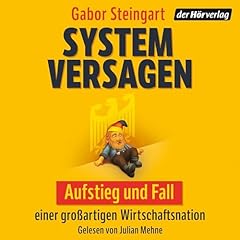
Technology and the Rise of Great Powers
How Diffusion Shapes Economic Competition
Artikel konnten nicht hinzugefügt werden
Der Titel konnte nicht zum Warenkorb hinzugefügt werden.
Der Titel konnte nicht zum Merkzettel hinzugefügt werden.
„Von Wunschzettel entfernen“ fehlgeschlagen.
„Podcast folgen“ fehlgeschlagen
„Podcast nicht mehr folgen“ fehlgeschlagen
 Bist du Amazon Prime-Mitglied?
Bist du Amazon Prime-Mitglied? Audible 60 Tage kostenlos testen
Für 49,95 € kaufen
-
Gesprochen von:
-
Rick Barr
-
Von:
-
Jeffrey Ding
Über diesen Titel
A novel theory of how technological revolutions affect the rise and fall of great powers
When scholars and policymakers consider how technological advances affect the rise and fall of great powers, they draw on theories that center on the moment of innovation—the eureka moment that sparks astonishing technological feats. In this book, Jeffrey Ding offers a different explanation of how technological revolutions affect competition among great powers.
Rather than focusing on which state first introduced major innovations, he investigates why some states were more successful than others at adapting and embracing new technologies at scale. Drawing on historical case studies of past industrial revolutions as well as statistical analysis, Ding develops a theory that emphasizes institutional adaptations oriented around diffusing technological advances throughout the entire economy.
Examining Britain’s rise to preeminence in the First Industrial Revolution, America and Germany’s overtaking of Britain in the Second Industrial Revolution, and Japan’s challenge to America’s technological dominance in the Third Industrial Revolution (also known as the “information revolution”), Ding illuminates the pathway by which these technological revolutions influenced the global distribution of power and explores the generalizability of his theory beyond the given set of great powers. His findings bear directly on current concerns about how emerging technologies such as AI could influence the US-China power balance.
©2024 Princeton University Press (P)2024 Dreamscape Media


















